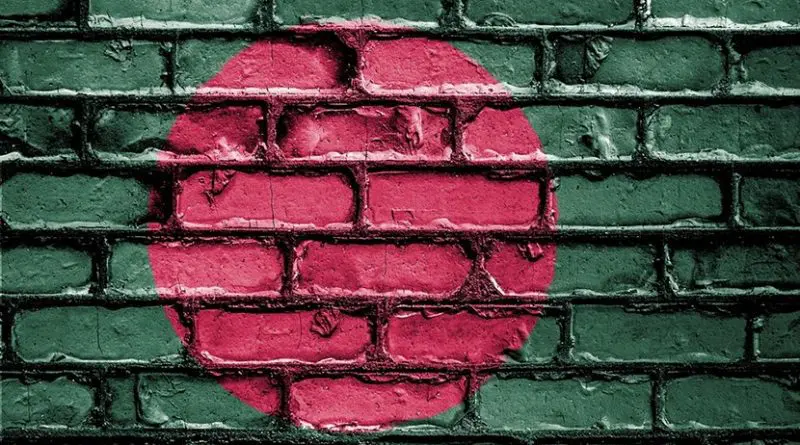Domestic Roots Of Violence And Terrorism In Bangladesh – OpEd
The internal defence of Bangladesh was in danger due to expanded activities of Pakistan’s ISI who had been bold enough in the pursuit of its anti-India agenda and it had opened an office-cum-transit centre in a well-known locality in Dhaka. Even for the Bangladesh government there are obvious limitations. Earlier attempts by the Sheikh Hasina government to close the ISI backed centres providing sanctuary to the north eastern rebels had not gone very far because of the indifferent attitude at the lower levels of the administration. It would be more difficult in future in view of the fact that Sheikh Hasina’s government had come under more pressure following the formation of a joint front by the three main opposition parties along with the fundamentalist Jamait-e-Islam, that might curtail her ability to take decisive action in the matter.
Role of political parties
In Bangladesh there is an intense and at times violent political rivalry between the country’s two main political parties – the Bangladesh National Party (BNP) and the Awami League (AL), and the presence of radical Islamist parties and groups have defined the further political course of the country in recent years. The BNP and the AL are headed by Khaleda Zia, the widow of former President and military strongman Ziaur Rahman, who was assassinated in 1981, while the AL by Sheikh Hasina who is the daughter of Bangladeshi independence leader and first Prime Minister Sheikh Mujibur Rahman, killed in 1975. As a general feature both when out of power, have devoted their energies to Parliamentary boycotts, demonstrations, and strikes in an effort to unseat the ruling party. Bangladesh witnessed last parliamentary elections in June 1996 and the chosen government continued till 2001. In this election the victory was won by Awami League under the captainship of Sheikh Hasina who although got 147 seats, with the cooperation of the Jatiyo Party (31 seats) and the Jama’at-e-Islami (3 seats) formed the government. The main opposition party led by Khaleda Zia also won a respectable 116 seats despite serious charges of corruption, her BNP party protested vote rigging by the AL and as a result the tenure of Sheikh Hasina was marked by frequent boycott of Parliament by the BNP, demonstrations and strikes. Gradually the political condition of Bangladesh deteriorated in the country.
Election-related factionalism
There is a 300-seat unicameral national Parliament in Bangladesh known as Jatiya Sangsad. The general election as scheduled held on October 1, 2001, and in the results, the Bangladesh National Party led by Khaleda Zia emerged as the single largest party getting 193 of its own. It, alongwith alliance partners which included the Jamaat-e-Islami (JI), the Islamiya Okiya Jote (IOJ) and the Jatiya Party (JP) Manzur Faction, won 41% of votes. The Awami League of Sheikh Hasina won 58 and the number of seats gained by other parties were as follows : JI:17, JP (Ershad Faction): 14, IOJ:2, JP (Manzur Faction):4, and others:12. Khaleda Zia took the oath of office as the 11th Prime Minister of Bangladesh on October 10, 2001. Although observers declared the poll generally free and fair, the Awami League of Sheikh Hasina refused to accept the result of the 2001 election and called for a programme of national resistance against the government and immediately announced a boycott of the eighth Parliament. It claimed that the elections were rigged but after boycotting the first two sessions of the Parliament the Awami League announced that it was forming a shadow cabinet and ended its boycott of Parliament on June 24, 2002, entering the parliamentary debate on the national budget. However, since then the Awami League had regularly boycotted most Parliamentary sessions or walked out of sessions in protest. Later the ruling Bangladesh National Party had published a white paper on the misuse of power, mismanagement and corruption allegedly committed during the period of Awami League rule. The AL had expressed concern over the inclusion of Jamaat-e-Islami Party which wanted to make Bangladesh an Islamic republic.
Legacy of anarchy and violence
The crisis in governance is not unique to Bangladesh. In its case it is the result of the circumstances in which the new nation was born. In pre independence days the undivided Pakistan’s inability to come to terms with the electoral verdict exposed the flaws in the political system. Mujib’s own authoritarian tendencies led to unrest and dissatisfaction with the masses, military rule and the elections that lacked legitimacy further exposed the weakness of constitutional government. In recent years the rivalry and competitive politics of the two major parties under Sheikh Hasina and Khaleda Zia resulted in frequent hartals and strikes, disturbing civic life. Low literacy and state controlled media forces the opposition parties to take the issues to streets to mobilise masses to win their support to their programmes. As Patricia Butenis, the former US Ambassador stated that Bangladeshis ‘have suffered because the political parties could not agree on the basic rules of game … the hard part is actually creating political parties that are genuinely democratic in practice and outlook, parties that focus on issues and the national interest instead of personalities. The situation has given small Islamist Parties, some of which have ties to violent Islamist radicals, a disproportionate voice in Bangladesh’s government and politics. Islamists support the imposition of Sharia law in Bangladesh where Islam has served as a legitimizing political force in Bangladesh which is 88% Muslim. Bangladesh’s status as a secular and moderate state, as well as its democratic process, has been jeopardized as a result of the approach taken by the two main political parties. It is also a question that should Bangladesh become a failed state or a state with increased influence by Islamist extremists, it could increasingly serve as a base of operations for terrorist activity.

